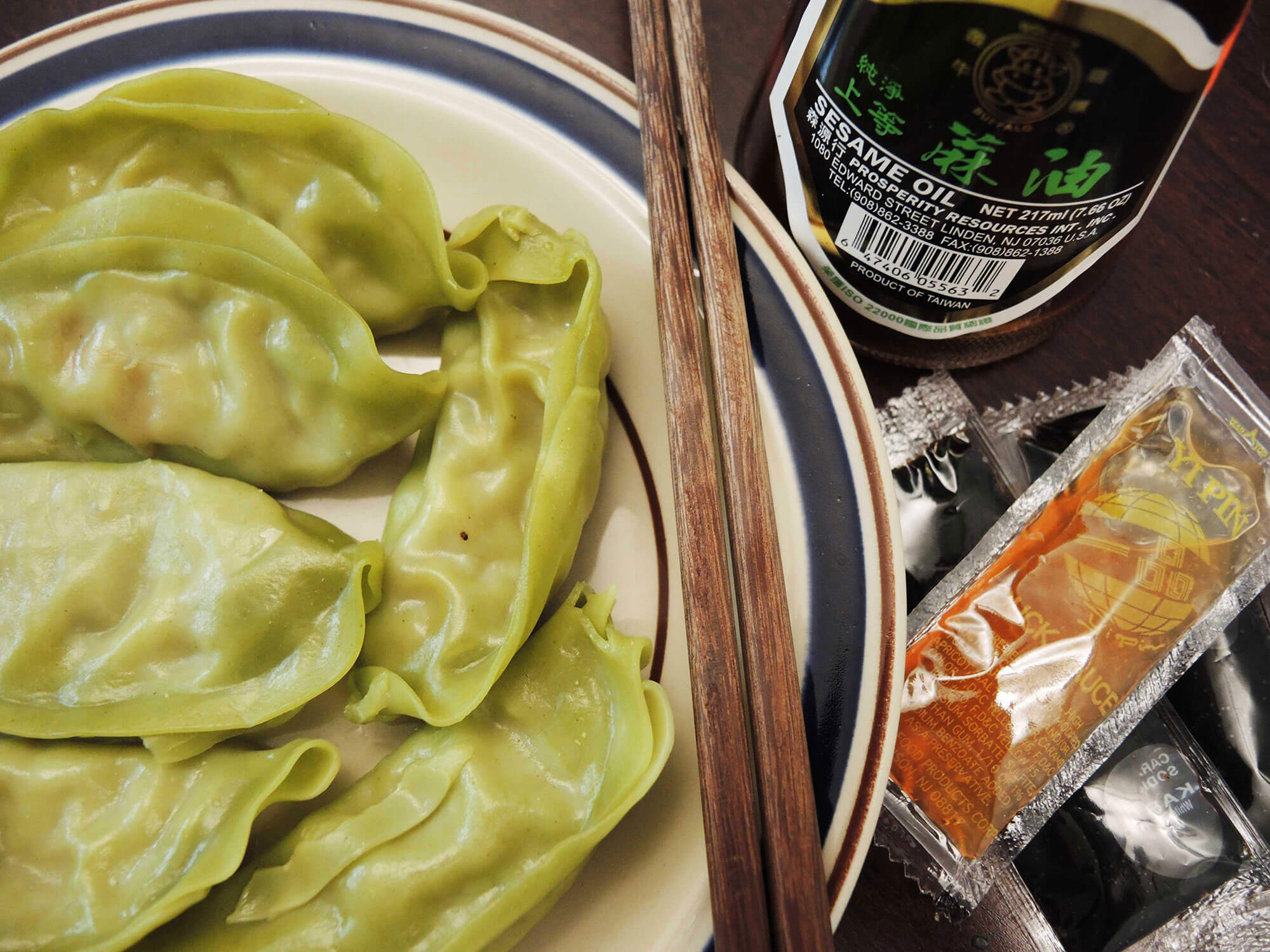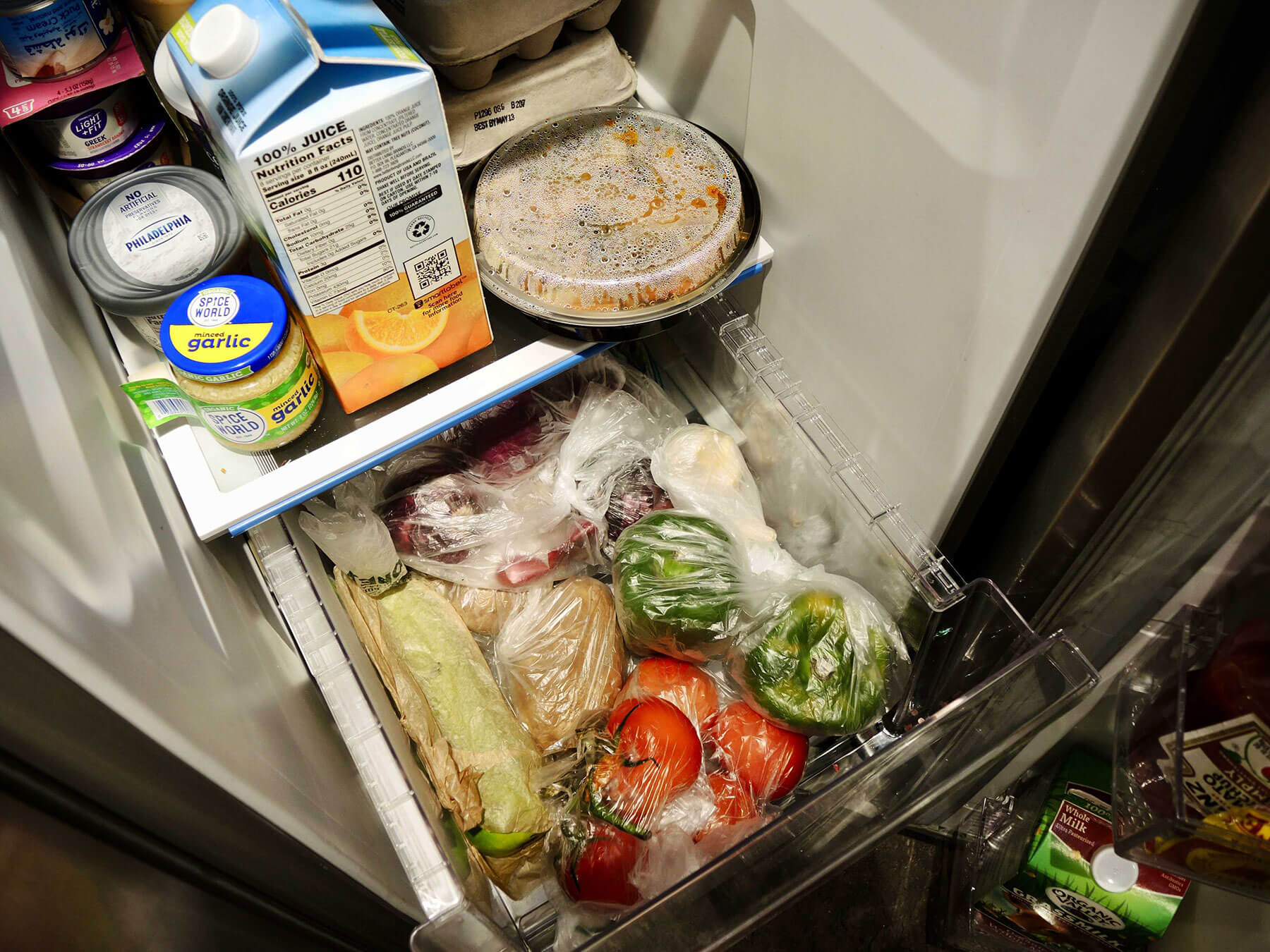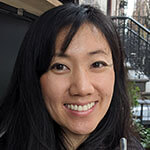
At dinner one evening, my mother hands me a bottle of sesame oil over a plate of freshly boiled dumplings, steaming and plump as piglets. I tip the bottle over my saucer of vinegar and soy sauce, the rich, fragrant oil pooling at the surface and spreading outward. She tells me that sesame oil was precious throughout her childhood, so precious that she would use only the amount that clung to the tip of a chopstick — a drop for each person.
I try to imagine living with that kind of scarcity. My parents’ memories of my earliest years are dominated by what they thought they could not provide for me. My dad’s full day’s wages could only buy an apple, and not the peach I asked for. I have no memory of this, but they recall it as clearly as if it happened yesterday.
My mother grew up in northeast China during a time when food and basic items were strictly rationed. The poverty of her childhood, however, extended beyond food. Her father, prone to bouts of violence, was most likely living with an undiagnosed mental illness, and her mother was abused and subdued. So when Mao called for urban youth to submit to reeducation in the countryside, my mother was eager for the opportunity to leave. She boarded the train to the countryside with hope and anticipation.

My father was raised in a poorer but far more affectionate family. My yeye and nainai gave and loved beyond their scant means, forming traditions that my dad carries out to this day. Treats made of the simplest ingredients — sweet rice cakes, mantou, glutinous rice balls filled with black sesame paste — were in short supply. Yet every Lunar New Year, my yeye and nainai would gather their six children and host a spectacular feast, spending half a year’s earnings on the celebration.
My parents’ families could not have been more different, but the common experience of their generation was scarcity. Insufficiency. The persistent gap between what a body demands for nourishment and growth, and what could be provided.
• • •
We moved to the States from China when I was 5 and settled in the Bronx, where my mother worked as a researcher in a medical lab and my father set off to find any work he could — driving taxis, delivering food. We struggled but we made progress, tentatively and slowly, toward the stability promised by the middle-class.
Our progress did not come with a sense of security. After all, my mother grew up in the aftermath of her grandmother’s abrupt and chaotic fall from wealth to impoverishment. My great-grandmother lost her husband and her home overnight during the uprising of the Cultural Revolution. Plunged into poverty and danger, she took her six children and went on the run from the Red Guards, who ransacked and punished the elite and educated. There is admiration and sadness in my mother’s voice when she recounts the story. My great-grandmother arrived in Changchun with a suitcase, six young children to care for, and no work experience to offer. The suitcase had been filled with the valuables she was able to save before fleeing her home. But when she got off the train with her children, she discovered that the contents had been swapped out, and the suitcase was filled with garbage.
Scarcity mentality, like a genetic trait, can be passed from one generation to the next. It’s fearing that the ground can drop from beneath you, just when you begin to trust your footsteps. It’s recognizing a current shortage of something essential — money, food, protection, community — and focusing on that shortage, being driven by a fear that there will never be enough. It’s living with the pervasive belief that an inch gained is an inch that could still be lost.
I understand why my parents carried this ethos with them as they threw themselves into the business of building a new life in a new country. They both grew up with a deep awareness of what they lacked. Their vow to their future selves, and to me, was to ensure I would never lack the things that they were deprived of growing up.
I remember arriving in the U.S. with my father, ecstatic to be reunited with my mother after several long months. I was awestruck by my mother’s studio in the Bronx the first time I saw it. There was a shower inside the bathroom! We didn’t have to go to a public bathhouse a 15-minute bike ride away! There was joy mixed with disbelief that this was now our life. How luxurious it seemed.
However, my parents felt the intense pressure to survive here. I wonder what all the years of focusing on survival has done to their capacity to dream more fully, to plan for a future. We did not dream big. We were content to want for nothing, to have enough.
On the one hand, a scarcity lens has helped my family appreciate hard-won victories. The pain of setbacks and failures provided a foundation of resilience and tenacity to build upon. On the other hand, viewing the world through a scarcity lens was like carrying a constant burden of doubt and fear over the future, no matter how much we achieved.
A scarcity mentality does not just limit our own lives. It can cause us to hold on tighter to what we believe to be limited provisions, to hold back from connecting with our neighbors and communities out of fear that there is not enough to go around. Instead of offering what we have with open hands, we clench our fists. The trauma my great-grandmother lived through, the harm inflicted upon my grandmother, the paucity of love and affection in my mother’s childhood, compound my fears with the weight of generations.
What is enough? When can we slow down, dare to rest, or think about something beyond providing for ourselves? Does this fear mean we lack faith in a God who provides? Under the burden of scarcity, there are no easy answers. The fear that we may fall back into poverty can hold us back from considering what purposes we may have beyond our own survival. The myopia of a scarcity lens can make these questions seem like luxuries.
This scarcity mindset seeped into my early attempts to understand faith. The gospel was good news, but how could I trust its permanence? In the context of my parents’ experiences, what was gained could be lost. Even gifts could be rescinded. Wouldn’t that hold true for God too?
• • •
As I grew older, I began to grasp the extent of my parents’ sacrifices. I realized how quiet they would get around the Lunar New Year. I remember not seeing my dad for weeks at a time when he worked as a taxi driver and started his day at 3 a.m. The nights, weekends, and holidays my mother spent studying for board exams, a Chinese-English dictionary on hand. It was not just the enormity of their burden that left me stricken. It was also the staggering imbalance in the division of burden, how small my portion was to bear compared to theirs.
I found it common to see immigrants of my parent’s generation saving everything from condiment packets and napkins from McDonald’s to packets of duck sauce (even though we don’t put duck sauce on anything). My dad, undeterred by prior experiences, would give sour milk a try before sending it down the drain.
Yet when it came to buying food for our family, my dad transformed into a man on a mission with seemingly unlimited means. He would march into Costco and emerge with a shopping cart filled to the brim, to be stuffed in the refrigerator — two heads of Napa cabbage, five bunches of scallions, half a dozen peppers, an enormous hunk of pork loin to join the one already in the freezer. Our counter would be littered with bags of oranges, sweet potatoes, bananas, dried dates, pistachios, and enough bags of sunflower seeds to last us through a winter hibernation.
This contrast strikes me. I know this abundance at Costco, of food, of feeding me, comes at a price. My parents paid the price of admission to our life of abundance — a burden that they bear overwhelmingly. And even if I were to offer, they would not fathom having me pay them back, nor would they expect me to earn my way to making their sacrifices worthwhile.

I’ve come to see this as a taste of unconditional grace, the outrageous idea that you need not and cannot earn what is given freely. My parents’ experiences have helped me embrace a faith that makes room for both loss and victory, for despair and joy, for scarcity and abundance. Where before I focused on their struggles, I can now better recognize its place in their journey.
From the arc of my parents’ stories, I can see that our ability to give does not depend solely on our own abilities or strengths. My mom did not have a deep well of family love to draw from. Yet from this place of insufficiency, she has been able to give far beyond her own reserves. I am a witness to her courage to love in spite of everything in her early years that taught her not to, and the healing she continues to experience.
I don’t know the answer to how to free ourselves from the burden of scarcity. It may always stay with us in some form. But maybe that’s all right. Jesus’ life demonstrates abundance in giving freely, extravagantly, impossibly, without expectation of return payment. From this, I glean that we do not have to shore up our reserves. We may find ourselves struggling under our burdens, but we need not worry about becoming completely and permanently depleted. We can give, love, and care for others with boldness.
These days, with the suffering we have collectively endured, I am grateful for the extra bit of time I can spend with my parents. The Han family dumpling recipe, fine-tuned by my dad over the years, has taken root here, and the dumplings have found their way into the bellies of many of our friends. No matter how bleak things were, my parents found a way to provide and nourish. I may not be able to repay them in full, but I can enjoy the time we still have together. I can use this time to practice making my family’s dumplings and in turn, practice caring for them and those around me.
The ingredients are simple, but there is no real recipe, no measurements to follow. To learn is to watch and imitate. My mother handles the dough and my dad takes care of the filling. With weathered hands, they carefully fold in their fierce love and hard-earned lessons, pressing the edges firmly into pleats, sealing each dumpling securely.

Lu Han was born in Changchun, China and moved to the U.S. with her parents when she was 5 years old. She had enough time in China to maintain conversational fluency in Mandarin and clear memories of hole-in-the-ground toilets. Lu has been based in New York ever since (30 years and counting), and currently calls Hell's Kitchen home. She attends Vision Church, a non-denominational Asian American church that meets in Midtown East. In her free time, you can catch her rock climbing, seeing Broadway shows and plays, reading (a lot) and writing (a little). www.helloluhan.com
